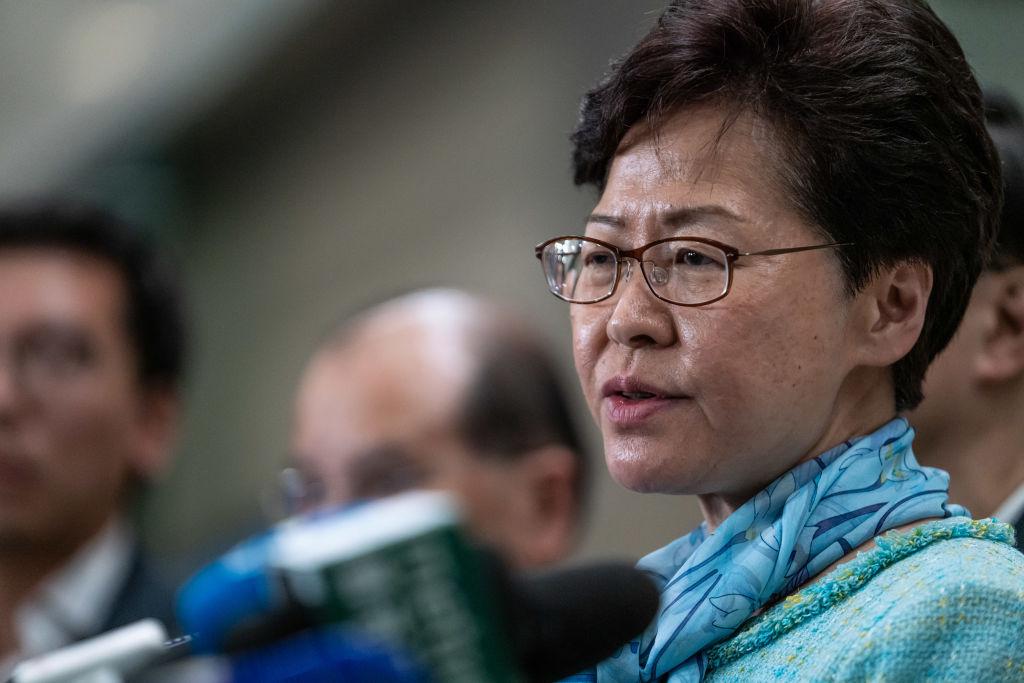As protests in Hong Kong continue over a controversial extradition bill, there has been much speculation over embattled leader Carrie Lam’s grip on power—particularly as to whether her backers in Beijing still trust her.
According to a July 14 article in the Financial Times, Lam has offered to resign, but Beijing is rejected her offer. The report cited two unnamed sources with direct knowledge of the situation.





